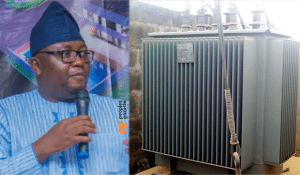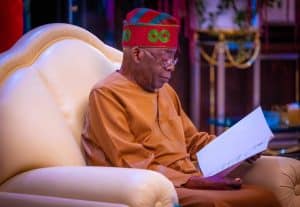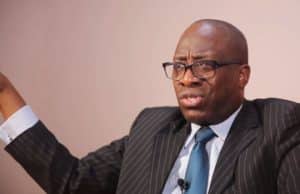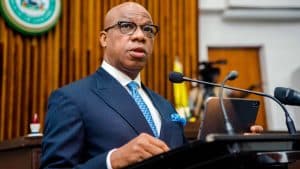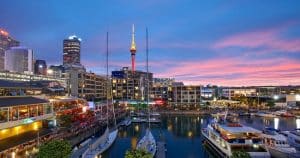Minister of Power, Adebayo Adelabu, has said that Nigeria still pays the lowest electricity tariff compared to other countries in West Africa such as Ghana, Ivory Coast, and Niger.
In the future, the power minister emphasized the importance of discussing whether Nigeria should bear the actual cost of power, as it is no longer inexpensive.
Adelabu insists that most of the West African countries are paying nearly twice as much as Nigeria on electricity tariffs.
The Minister, however, expressed his concerns regarding the inadequate electricity supply in the country.
He attributed this issue to various factors, including outstanding subsidy debts. Adelabu suggests that if the federal government is unable to pay the owed subsidies to the market, which is one of the factors affecting the power supply, Nigeria should transition to a full cost-reflective tariff system.
Furthermore, the Minister highlighted the under-utilization of the National Independent Power Plants (NIPPs) managed by the Niger Delta Power Holding Company Plc (NDPHC). This is primarily due to the consistent shortage of gas supply.
Naija News understands that Adelabu stated these during his nationwide inspection visit to power installations of the federal government.
Adelabu visited the Olorunsogo Power Generating Plant in Ogun State, which has a capacity of 750 megawatts (MW), and the Omotosho Generating Plant in Ondo State, which has a capacity of 500mw.
Speaking during the inspection, the minister said, “We have been to Olorunsogo and we are now in the Omotosho Power Plant. These are big power plants. I am impressed with the size and the technology of the power plants here. Their operational history is also impressive.
“And I am amazed at the level of underutilisation of these power installations. Each of them operates below 25 per cent capacity, when we are still complaining that power generation is low in this country. The under-capacity utilisation is due to a variety of reasons.
“The major part of it is the shortage in gas supply to these installations, which is why I needed to see these plants myself, to look at what can we do to improve the operational capacity of these plants.”
What My Ministry Will Do To Improve Operational Capacity
When asked what could be done to repair those turbines that are down, the Minister told Arise News that he “Would later engage with the management of the power companies to explore better ways of collaboration and cooperation such that the federal government could support them to improve their operational capacity, and consequently improve the level of power supply to the distribution companies.”
Adelabu further observed that the government-owned generating companies were presently undervalued. He argued that the government needed to undertake various tasks to enhance their capacity and improve their valuation before considering selling them.
According to Adelabu, if the plants were sold in their current condition, the country would incur losses. He emphasized that Nigeria had made significant investments in these power installations, which had only been in existence for 12 years.
To address the challenge of gas supply, the minister highlighted the importance of convening a roundtable meeting and collaborating with the Minister of State for Petroleum (Gas). This collaboration would ensure regular gas supply to the generating companies and ultimately resolve the issue of underutilization of the plants.
Adelabu also suggested that Nigeria should transition to a full cost-reflective tariff regime if the federal government is unable to settle the subsidies owed to the market.
He specifically said, “And we also want to appeal to the federal government that once there is a subsidy promise, it has to be fully funded. If our government is not ready to fund subsidies, it is actually better for us to migrate to a fully-cost-reflective tariff, because liquidity is a major issue in the sector, which has led to a huge debt being owed power generating companies.
“And once they are owed, they are also unable to pay the gas suppliers. When the gas suppliers are not paid, they will be unwilling to supply regular gas to them.
“So where are these debts piling up? Where are they coming from? Part of it is the Discos owes some portion of these debts while the federal government also owes a huge portion of these debts, which relate to the unfunded portion of the subsidy that they pledge.
“So, I will do everything within my capacity. I have already had a meeting with the honourable Minister of Finance and Coordinating Minister of the Economy as well as the honourable Minister of Budget and National Planning and the Special Adviser to the President on Energy, on how we can fund the outstanding subsidy unpaid by the federal government.”
Adelabu mentioned that the meeting with the concerned ministers would persist on Thursday, emphasizing their intention to deliberate on strategies for assisting the power industry by infusing the necessary funds and settling a portion of the unpaid debts owed to the generating companies.
“So, if the government is insisting on continuing with the subsidy, then it has to be funded so that there’s no debt piling up for the generating companies. That’s the only way out of the current power situation,” he maintained.
Nevertheless, Adelabu provided reassurance to the Nigerian people that there will be a significant enhancement in the availability of electricity across the country in the upcoming weeks.
He explained that the recent decline in power supply over the past three weeks was only a temporary setback caused by a shortage of gas supply to the power generating companies.
Additionally, he made a commitment on behalf of the government to promptly settle a substantial portion of the debts owed to the power-generating companies within the next few days.
The Minister expressed his belief that the gas supply to the power-generating companies would improve, consequently leading to an overall improvement in power supply throughout the entire nation.
The post Nigeria Pays The Lowest Electricity Tariff Compared To Ghana, Ivory Coast, Niger – Says Adelabu appeared first on Naija News.
